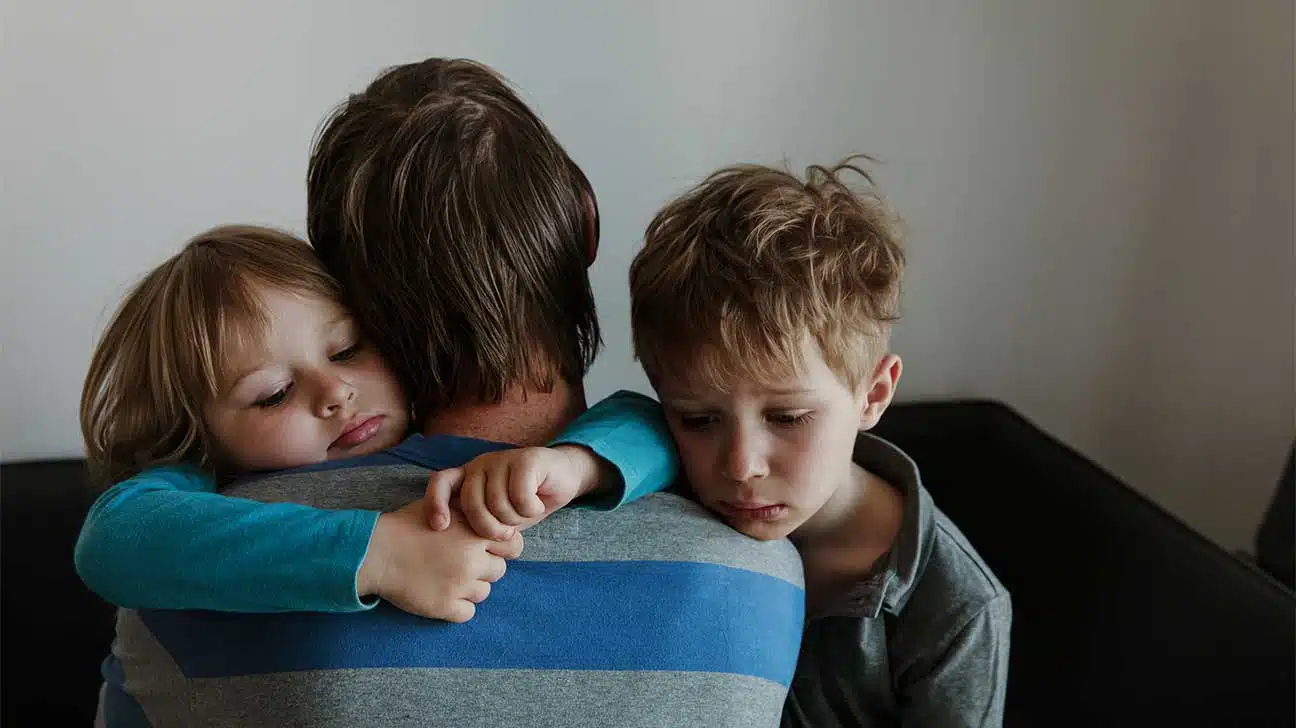
When a family member is experiencing a substance use disorder (SUD), the whole family can be affected.
Family members may also be the last source of support that people with addictions have.
So when a person makes the brave choice to seek help, the thought of leaving their family behind can be traumatic and may cause them to decide not to seek treatment.
But you don’t necessarily have to leave your family when starting addiction treatment, or you may only need to be away from them for a short time.
Read on to learn about treatment options that allow you to continue living at home and others that may require a short period without contact.
Addiction Treatment While Living At Home
There are addiction rehab programs that don’t require you to stay at the facility for the duration of your treatment, allowing you to return home each night.
These options are typically for people with mild to moderate SUDs who have a stable living environment and support from loved ones.
Outpatient Treatment
Outpatient treatment centers give people the opportunity to remain living at home with their families while completing a rehab program.
Unlike inpatient and residential treatment centers, where clients stay onsite, outpatient programs may require just a few hours of treatment per week, up to as many as 30 hours.
Clients attend therapy sessions, peer recovery group meetings, and participate in other treatments typically during the day and return home in the evenings.
Some outpatient centers also offer evening and weekend treatment options, giving clients even greater flexibility to continue working or attending school.
Additionally, family therapy may be an option, giving family members an opportunity to participate in their loved one’s recovery and offer support.
12-Step Programs
Alcoholics Anonymous (AA), Narcotics Anonymous (NA), and other 12-step programs are designed to provide support for people with SUDs while allowing them to live at home.
Meetings typically occur in the evenings or on weekends, allowing participants to maintain their daily family contact as well as their jobs or other responsibilities.
AA and other 12-step programs offer:
- peer recovery support
- guidance from mentors
- a structured recovery approach
This approach encourages family involvement and support, fostering a social support network that aids in the recovery process while preserving family connections.
Onsite Addiction Treatment Options
More intensive forms of addiction treatment may limit or not allow family contact for a short period, depending on the type of treatment the client needs.
Treatment facilities where clients stay onsite also often offer family therapy and invite family members for family nights or other opportunities to visit with their loved one.
Inpatient Treatment
Inpatient treatment, necessitating staying at a facility, may limit family contact due to the highly structured nature of the programs to aid clients’ recovery.
Inpatient treatment may refer to programs that last about 30 days and take place at a hospital or in another clinical setting, or it may refer to residential programs that can last up to a year or more.
Inpatient treatment may focus more on medically stabilizing clients at first, if required, during which family contact may not be allowed.
Once a client is stabilized, however, family visits and options for family therapy may be provided. These options are also available at many residential treatment facilities.
Inpatient treatment can ultimately strengthen family bonds by helping clients achieve long-term sobriety.
Detox Centers
Detox centers primarily focus on stabilizing clients and helping them safely and successfully detox from drugs or alcohol through the management of withdrawal symptoms.
Family contact most likely will not be allowed during this time. Clients typically stay in a detoxification program for no more than a week.
While some centers may allow brief visits or family therapy, it’s only after the client has stabilized and completed the detox process.
Once detox is complete, clients can transition to other treatment settings that offer more family involvement.
Benefits Of Involving Family In Addiction Treatment
Incorporating the family into addiction treatment can provide several benefits to clients, so treatment providers typically encourage family involvement.
Some key benefits include:
- enhanced support: Family involvement provides a strong support network, fostering encouragement and motivation for recovery.
- improved communication: Family therapy can address underlying family issues, promoting healthier communication.
- relapse prevention: Family involvement can equip loved ones with tools to identify signs of relapse and intervene effectively.
- empathy and understanding: Education about addiction helps family members better grasp the challenges faced by their loved ones.
- strengthened relationships: Family involvement facilitates the healing of strained family bonds, promoting long-term recovery and harmony.
Find Drug And Alcohol Treatment Today
Explore addiction treatment options by visiting AddictionResource.net today, or give us a call for assistance.
Addiction Resource aims to provide only the most current, accurate information in regards to addiction and addiction treatment, which means we only reference the most credible sources available.
These include peer-reviewed journals, government entities and academic institutions, and leaders in addiction healthcare and advocacy. Learn more about how we safeguard our content by viewing our editorial policy.
- National Library of Medicine – Specialized Substance Abuse Treatment Programs
https://www.ncbi.nlm.nih.gov/books/NBK64815/


